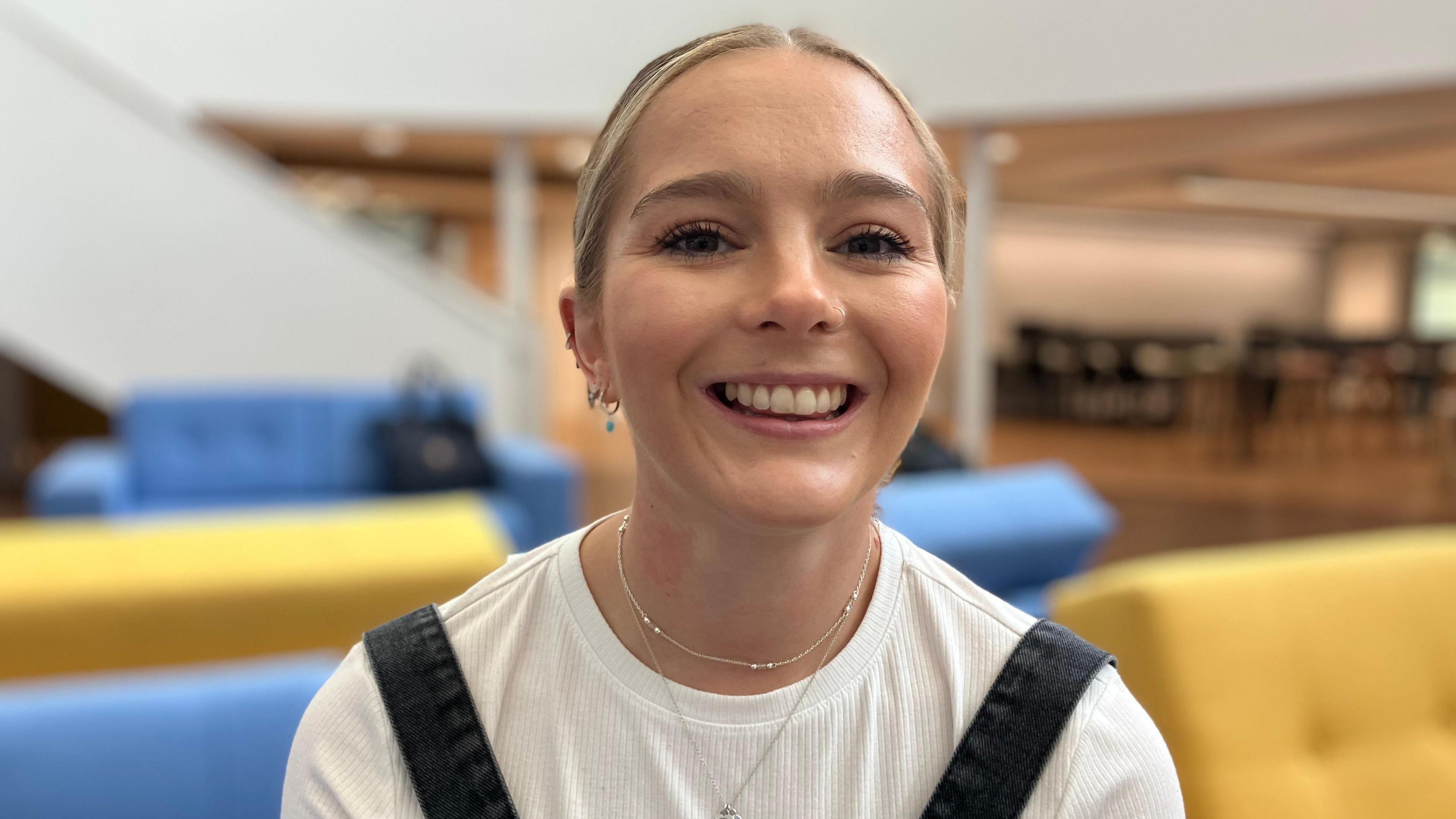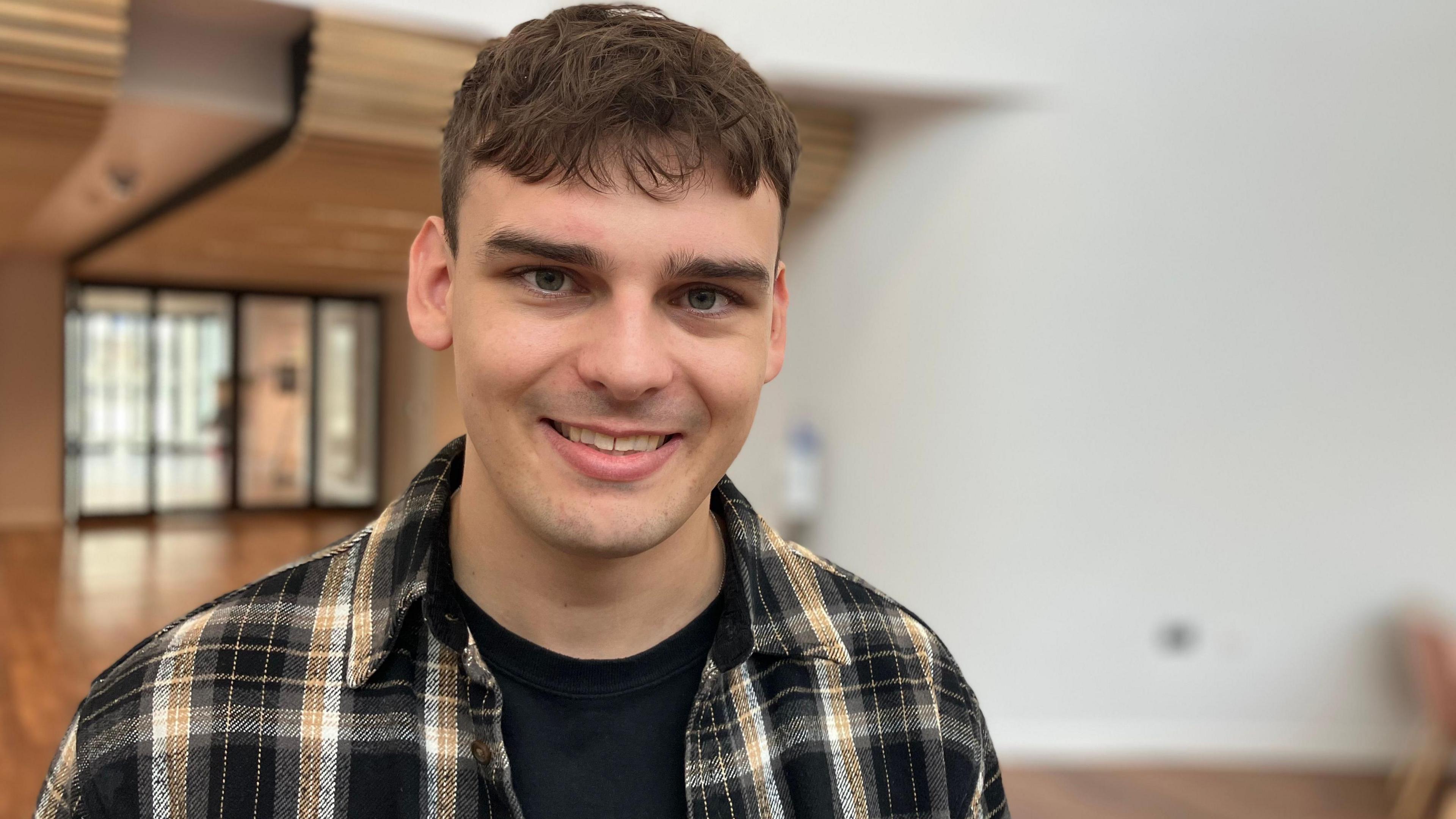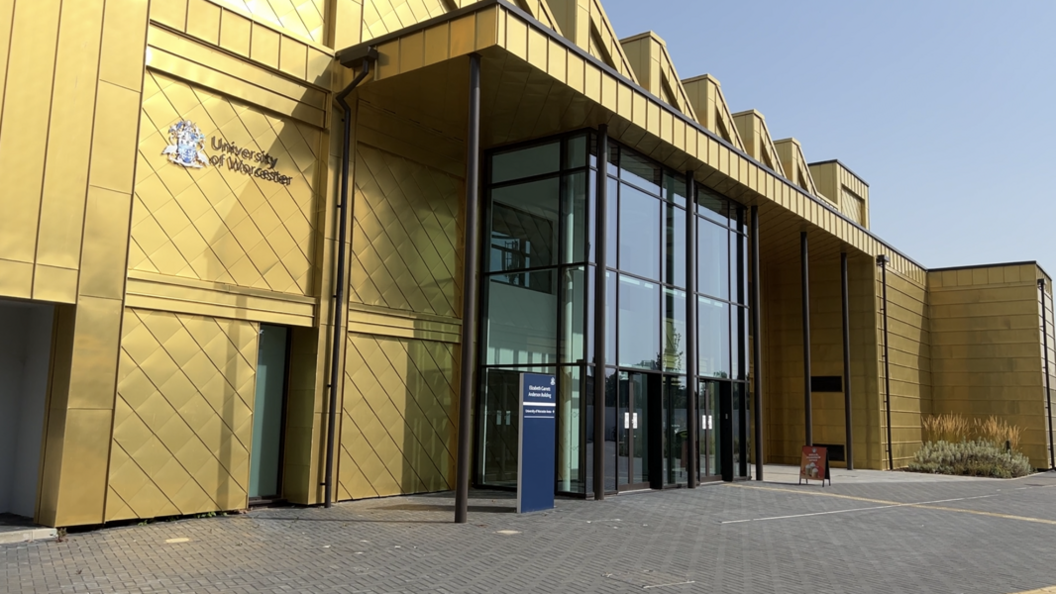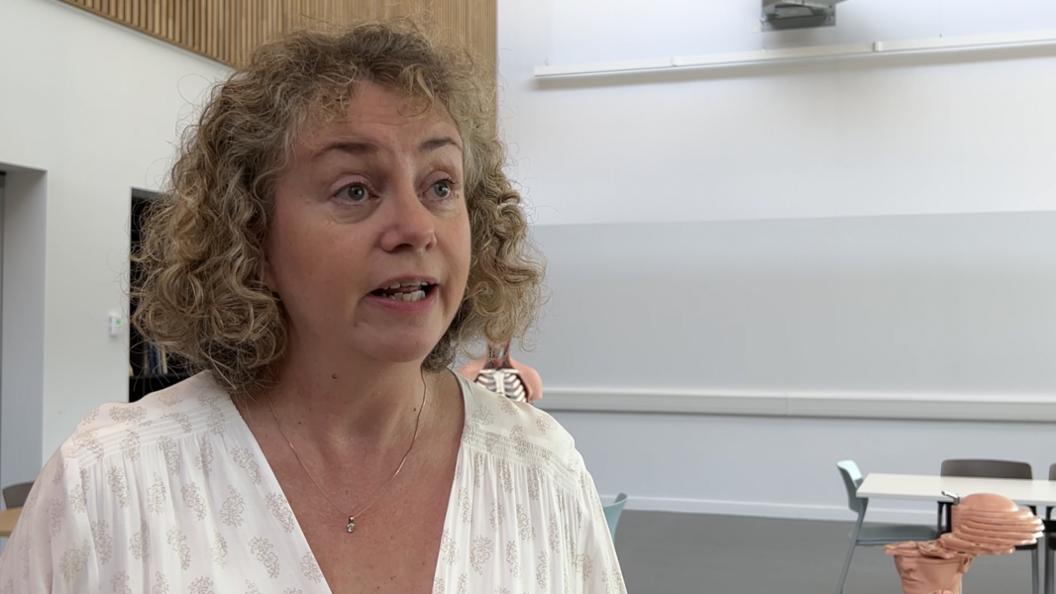First medical students 'milestone' for university

The medical students are beginning a four-year postgraduate course
At a glance
Forty four medical students are starting postgraduate degrees at the University of Worcester's Three Counties Medical School
It is hoped they will apply for jobs in the area when they graduate
This year's places have been funded by the Kildare Trust charity and local NHS bodies
However the medical school's long-term success will depend on it receiving government backing
- Published
The University of Worcester has welcomed its first ever medical students.
Their arrival has been greeted as a milestone by NHS leaders in the area, who hope that doctors who train locally will stay on afterwards to help solve staff shortages.
Despite not being awarded government-funded places, 20 UK students and 24 international students have begun a four-year graduate course at the university's Three Counties Medical School.
The cost of their education will be met by grants from the NHS in Gloucestershire, Herefordshire and Worcestershire and funds from a local charity.
Prof Sandra Nicholson, dean at the medical school, said there was a "critical" shortage in all health professions in the area.
She said students were "more likely to stay local when they graduate".

The first from her family to go to university, Katie Cobain will also be among the first to study medicine at Worcester
Several of this year's intake are the first in their families to go into medicine, or to attend university.
They include Katie Cobain, 28, from Pershore, who said she was passionate about becoming a doctor, but also wanted to come back to work in her home county.
"I would love to be a doctor in this part of the world," she said.

Cameron Banner said he had wanted to be a doctor since the age of 15
Cameron Banner, 22, from Bromsgrove, is also keen to work close to home when he graduates.
He said it would allow him to be close to family and friends.
It took him three attempts to get into medicine, and said he had wanted to work for the health service since spending time in hospital when he was 15.
"I think my family was very proud and I was very proud of myself, it's been a long journey," he said.

Current places at The Three Counties Medical School are being partly funded by grants from NHS bodies in Gloucestershire, Herefordshire and Worcestershire
Though the University of Worcester was given the go-ahead to recruit its first medical students in 2021, Health Education England, which oversees UK-funded places on the government's behalf did not award any to the new medical school.
This had left a major funding gap. While the university could charge more than £9,000 a year in tuition fees, a single year of education for a medical student costs more than £40,000.
To prevent delays to training, a grant of £1.7m has been made by the NHS in Herefordshire, Worcestershire and Gloucestershire.
Local charity the Kildare Trust has also pledged £1.5m.

Prof Sandra Nicholson says the medical school aims to improve access to higher education for those who would not otherwise become doctors
In total, 44 graduate students have started their training this month.
The university has also committed to funding another 16 places for September 2024.
It is hoped that by 2025 the medical school will be able to train 150 students a year, but its long-term success depends on the government awarding funded places.
Back in June, ministers set out a long-term workforce plan for the NHS, to increase the number of funded medical student places. But this is not set to come in until 2025.
Follow BBC West Midlands on Facebook, external, Twitter, external and Instagram, external. Send your story ideas to: newsonline.westmidlands@bbc.co.uk, external